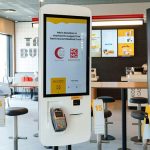The Qatar Red Crescent Society (QRCS) has stepped in to support the Rehabilitation and Prosthetic Implants Center in Idlib, northwestern Syria, to address the dire humanitarian conditions faced by the population in the region. The project aims to provide specialized services for persons with disabilities who have limited access to medical care due to displacement and inadequate local health facilities. By offering prosthetic implants and physiotherapy/psychological support sessions, QRCS seeks to enhance the physical and mental well-being of individuals with disabilities, improve their quality of life, and strengthen the resilience of internally displaced people (IDPs) and local communities in the area.
Under the guidance of QRCS’s representation office in Turkiye, the center will provide 300 prostheses for individuals who have lost limbs during the conflict or the 2023 Turkiye-Syria earthquake. Additionally, 176 splints and orthoses will be utilized, with a particular focus on children in need of urgent medical assistance for better growth and health outcomes. Specialized physiotherapy and rehabilitation sessions will be conducted by a dedicated team, with customized treatment plans tailored to each patient’s specific needs. A total of 18,270 physiotherapy sessions will be administered to 1,680 beneficiaries to help them overcome disabilities and reintegrate into normal daily activities.
In addition to physical rehabilitation, the project includes 2,500 psychosocial support sessions for beneficiaries and their families to promote social integration and mental well-being. With 650 patients identified as in need of psychological services, these sessions will play a crucial role in improving their mental health and ability to cope with their circumstances. Through the provision of these services, QRCS aims to make persons with disabilities more independent, socially integrated, and self-reliant, while also enhancing their overall health and happiness.
The initiative will directly benefit 2,200 individuals with disabilities and indirectly impact over 11,000 individuals in the community, contributing to the broader goal of creating a more inclusive and supportive environment for all. In a region where access to quality health services, especially in rehabilitation and prosthetics, is severely lacking, QRCS’s intervention is a much-needed lifeline for those most vulnerable in the community. By addressing the physical, mental, and social needs of persons with disabilities, the project not only improves individual outcomes but also strengthens the resilience and well-being of the community as a whole.
In conclusion, the support provided by QRCS to the Rehabilitation and Prosthetic Implants Center in Idlib is a critical intervention that addresses the urgent needs of the population in northwestern Syria. By offering specialized services for persons with disabilities, including prosthetic implants, physiotherapy, and psychological support, QRCS is working to improve the physical and mental health of individuals, enhance their quality of life, and promote social integration within the community. Through targeted interventions and customized treatment plans, the project aims to empower individuals with disabilities, foster their independence and resilience, and ultimately contribute to a healthier and happier community in northern Syria.











